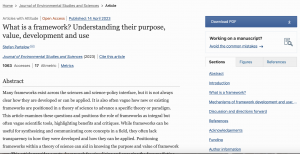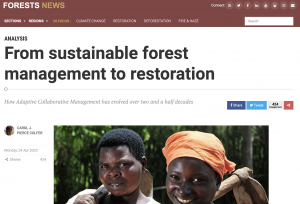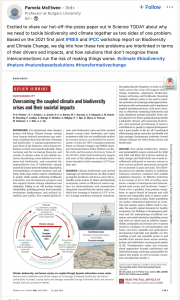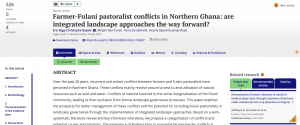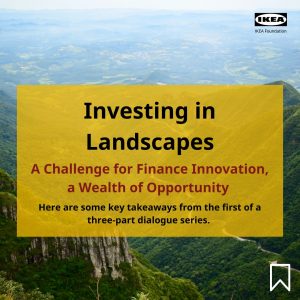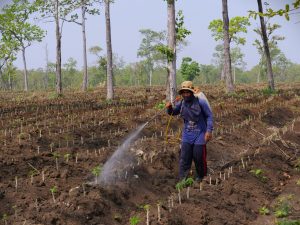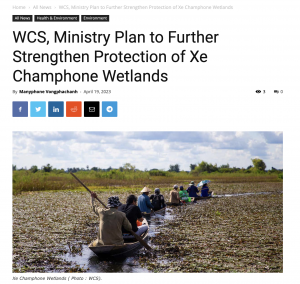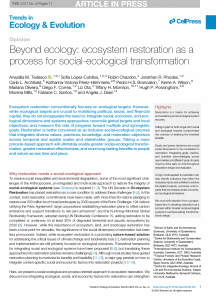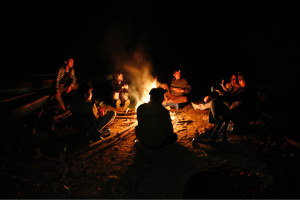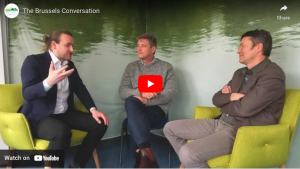Category: Knowledge
What is a framework? Understanding their purpose, value, development and use
This article explores the development and application of frameworks in the sciences and the science-policy interface. While frameworks are valuable tools for synthesizing and communicating core concepts, their development and application are often vague and lack transparency. The article emphasizes the importance of positioning frameworks within a theory of science to understand their purpose and value. It introduces a meta-framework that visualizes the four mediating processes involved in framework development and application: empirical generalization, theoretical fitting, application, and hypothesizing. The article concludes by providing guiding points for scholars and policymakers using or developing frameworks in their research.
From sustainable forest management to restoration
This blog asks, how effective was Adaptive Collaborative Management, a concept that was first introduced 25 years ago?
Overcoming the coupled climate and biodiversity crises and their societal impacts
Climate change and biodiversity loss are interconnected crises with severe social and ecological impacts. Pörtner et al. propose solutions such as reducing greenhouse gas emissions, protecting landscapes and seascapes, and ensuring equitable resource access. These actions are vital for ecological function and human well-being.
Farmer-Fulani pastoralist conflicts in Northern Ghana: are integrated landscape approaches the way forward?
This paper examines conflicts between farmers and Fulani pastoralists in Northern Ghana, focusing on access to natural resources. The social marginalization of the Fulani community and their exclusion from landscape governance processes are identified as key issues. The study explores the potential for integrated landscape approaches to manage conflicts and include Fulani pastoralists in governance. Insights from Burkina Faso's experience in managing farmer-herder conflicts are presented. The paper argues that adopting more inclusive landscape approaches can reconcile diverging interests and mitigate conflicts. Urgent attention is needed to address negative perceptions, neglect of pastoral activity in development processes, and lack of inclusion in decision-making.
New Dialogue Series Focuses on Groundbreaking Finance Advances
The first in a series of three dialogues between our partner organisation, 1000 Landscapes for 1 Billion People and key funders, addressing the question of how to get the money to where it is most needed to make a difference.
In the news: The Cassava-Boom Undermining a Leading Conservation Program
This article looks at how the boom in cassava growing is negatively impacting a leading conservation project in Cambodia.
In the news: strengthening of protection of key wetlands in Laos
The article highlights our Laos project, and reports on a recent meeting to strengthen the protection of a key landscape.
Beyond ecology: ecosystem restoration as a process for social-ecological transformation
This paper examines the importance of an adaptive and iterative, social-ecological approach that values all stakeholders and their opinions to ensure success in ecosystem restoration.
🔥 Hot topic: A carbon primer
There are so many burning questions around this carbon offsets business, aren't there? Just when you were getting your head round REDD+ and its potential to fund your Integrated Landscape Management project, along came The Guardian and set fire to it all. Should you persist or desist? We, as the Landscapes For Our Future Central Component, can’t answer that for you, but we can provide a primer that might help you to blaze a trail through the embers.
The Brussels Chat
Informal, illuminating conversation on the centrality of an integrated approach: the day after members of our programme's Central Component had delivered a presentation on Integrated Landscape Management to EU project managers, Kim Geheb sat down with the European Commission's Head of Environment and Mainstreaming and the Policy Officer for Land and Environment to reflect on the key takeaways from the session and the comments that had turned the most heads.


